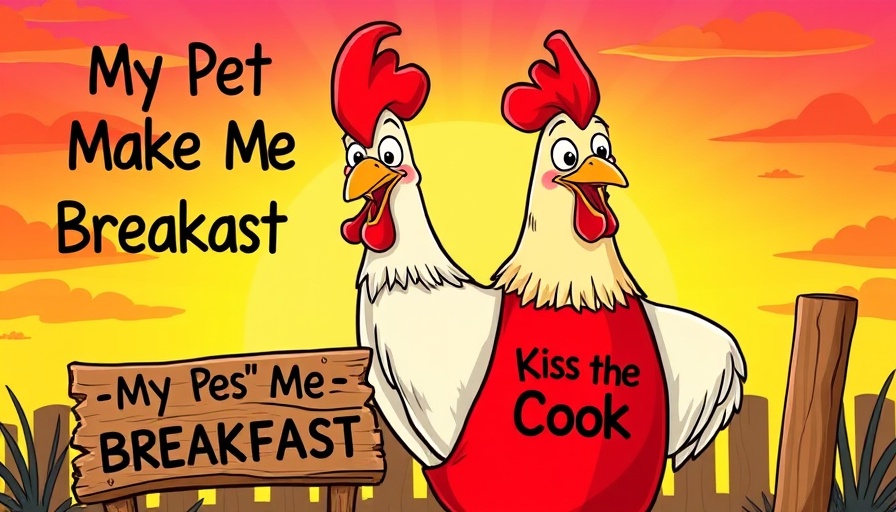
Add a Personal Touch to Your Chicken Coop
Naming your chicken coop may seem like a trivial task, but it serves as a meaningful way to personalize your backyard environment. From "The Eggery" to "Cluckingham Palace," the right name can reflect the effort you've put into creating a comfortable home for your flock. Adding a name not only completes the look of the coop but also fosters a sense of identity and endearment for both you and your chickens. As an Avian veterinarian with over 15 years of experience, I encourage chicken owners to consider these names as a reflection of the relationship between humans and their feathered companions.
Amusement and Affection in Naming
When selecting a name for your coop, humor can uplift spirits. Consider names like "Mother Cluckers" or "Coop de Poop," which may amuse both visitors and neighbors. The incorporation of puns can lead to laughter, creating a warm atmosphere around your backyard farming venture. Beyond humor, names like "Brewster's Roosters" provide a nostalgic and affectionate touch, helping to form bonds with your poultry.
Names That Resonate Locally and Culturally
Another way to make your coop special is by incorporating local cultural references or languages. For example, "Casa de Huevos" (Spanish for "House of Eggs") can resonate with those who value heritage. Additionally, using names from other cultures enriches the identity of your coop, allowing it to stand out while celebrating creativity. For instance, "Le Poulailler" (French for "The Hen House") combines culture with charm, creating a unique identity for your livestock’s abode.
Finding the Perfect Name: A Creative Process
Finding the perfect name could involve brainstorming sessions with friends or family, creating a sense of community around your backyard project. Utilizing humorous song titles or puns not only promotes creativity but also adds a touch of whimsy. Think of names like "Chicken, Hen, and Hähnchen" that intertwine multiple language influences, turning your coop into a conversation starter.
Conclusion: Make Every Name Count
As you craft a name for your chicken coop, remember that it embodies not just a structure, but the lively spirit of your hens. Whether opting for a classic name like "Hen Haven" or a whimsical joke like "Cluck on Inn," every choice invites joy into your backyard. Embrace the opportunity to share your creativity and humor, enhancing the experience of raising chickens. What will you name your coop?
 Add Row
Add Row  Add
Add 




Write A Comment